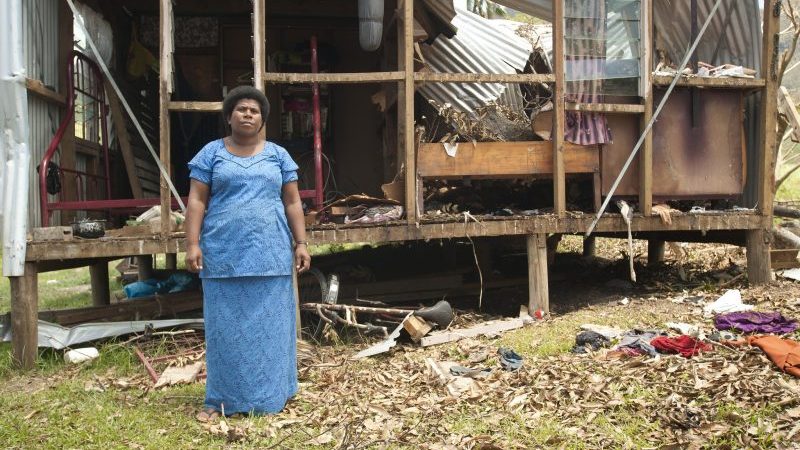MADRID – The US government is pushing to ensure it can never be held accountable for the damage caused by climate change in vulnerable countries.
In 2015, countries agreed that references to ‘loss and damage’ in the Paris Agreement would not provide the basis for any liability and compensation.
A US proposal being circulated at Cop25 talks in Madrid, which CHN understands hasn’t yet been formally submitted to the UN, would extend the liability waiver to mentions of loss and damage in decision texts under the UNFCCC convention, the supreme decision-making body at UN Climate Change.
The UN climate talks can tackle fossil fuels head-on: here’s how
The US position, the text of which CHN has seen, also proposes that all countries, including those not party to Paris, be eligible to serve on the executive committee governing loss and damage negotiations. The White House has formally began the process of pulling the US out of the Paris deal, but the country will remain a member of the UNFCCC.
The move could allow the US to have a say on the governance of the loss and damage mechanism and reflects the US’ intention to continue to wield influence on the talks.
Bulletins from Cop25, every morning, straight to your inbox? Sign up here
The US has repeatedly sought to prevent any liability and compensation claims. The country is responsible for almost a third of the gases now heating the planet. The US delegation declined to comment.
There is no indication that poorer countries plan to demand compensation during Cop25. But developing countries fear the position could make it easier for rich countries to refuse providing funding to help vulnerable countries recover from climate impacts.
In a climate emergency, there must be compensation for victims
One developing country diplomat told CHN there was a shared view among vulnerable countries that including a waiver on liability and compensation in the Cop25 decision was “a no go”. This, he said, could become a red line if the US pressed ahead, potentially threatening a broader discussion on loss and damage.
Who should pay to help countries affected by extreme weather events and slow-onset impacts such as sea level rise, is a question at the top of the agenda at the Madrid meeting.
The 2013 international framework to address loss and damage, known as the Warsaw International Mechanism, is up for review and countries are due to agree how this body should be governed and, crucially, financed.
Rich countries, and particularly the US, have long dragged their feet on the issue.
We need your help… Climate Home News is an independent news outlet dedicated to the most important global stories. If you can spare even a few dollars each month, it would make a huge difference to us. Our Patreon account is a safe and easy way to support our work.
Vulnerable countries are calling for funding options to be explored, including the creation of a bespoke funding facility.
The issue has been the subject of long running disputes over whether it should be dealt with as part of UN climate change convention (UNFCCC) or Paris Agreement meetings.
Harjeet Singh, global lead on climate change for ActionAid, told Climate Home News: “As civil society, we are completely outraged. There is nothing worse that can happen in this space.”
Singh said the proposal would “cripple the entire architecture of a mechanism that is supposed to help vulnerable countries”.
“If [the US] is not going to play the game, why would it continue to direct the rules of the game,” he added.
